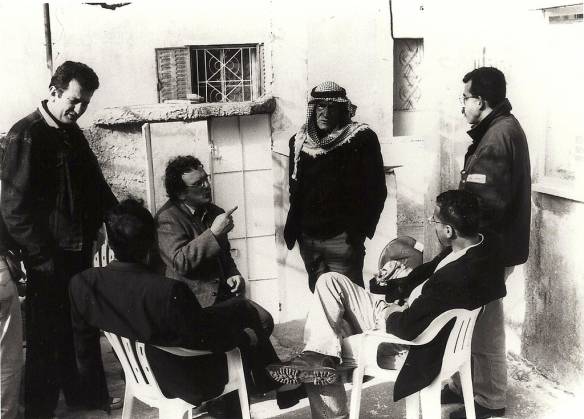Political scientists debate whether the world is getting more violent or less. Regardless of where you situate yourself in this discussion, it does seem that social scientists are putting themselves into more violent situations than ever before.

Researchers during an interview in Deheishe refugee camp in the West Bank. Photo: Benny Brunner
Especially within the field of political violence and conflict studies, students and scholars travel to active conflict and post-conflict areas, interview and interact with people who experienced high levels of violence, witness violence and potentially experience violence targeted at them. In addition to direct experiences with violence, many of us spend hours, often alone in our offices, reading genocide perpetrator testimonies, personal stories of sexual violence, or State Department reports cataloging years of crime and abuse.
These are all experiences capable of producing psychological trauma, yet as a field we rarely engage with the implications of this trauma for our work or ourselves. Many of us have preconceived ideas about what trauma is and remain doggedly convinced that what we study isn’t that bad, that what we’ve experienced isn’t as distressing as what others have, or that what we are feeling is nothing really. Yet, the evidence suggests otherwise.
Read more at Political Violence @ a Glance, where the full text was published 30 October 2014.